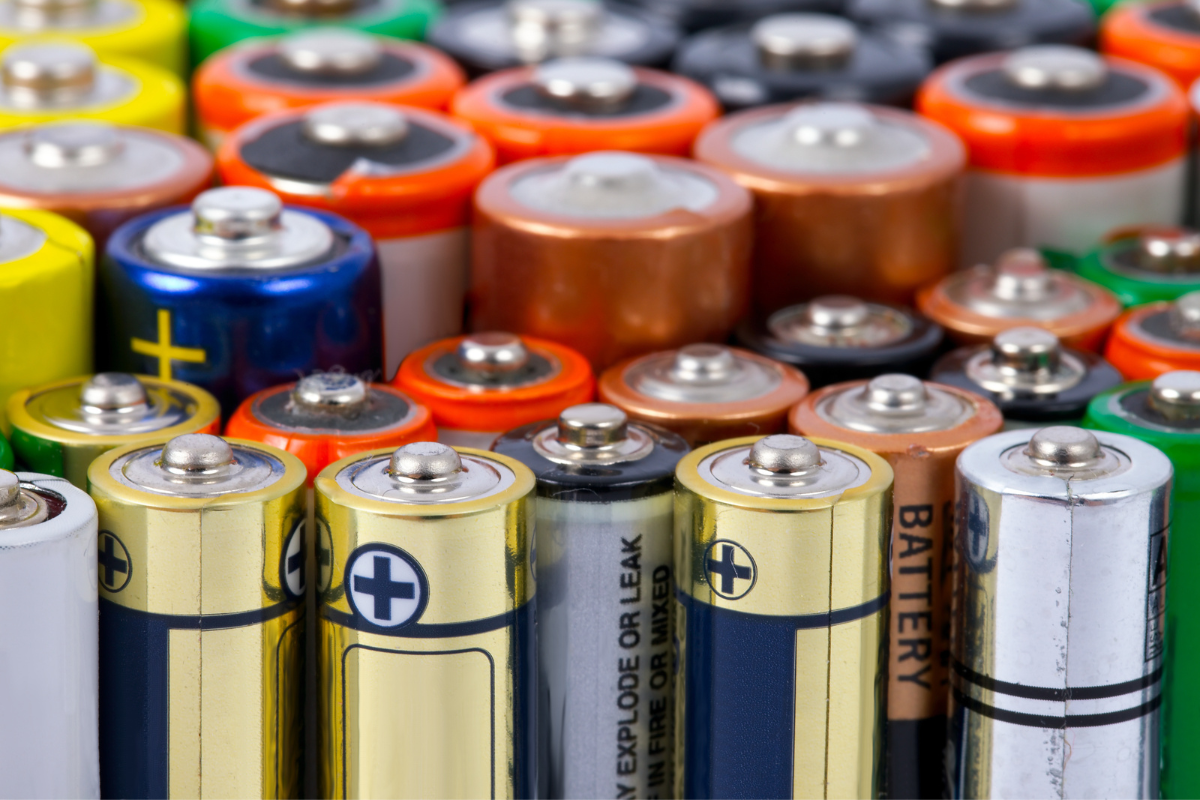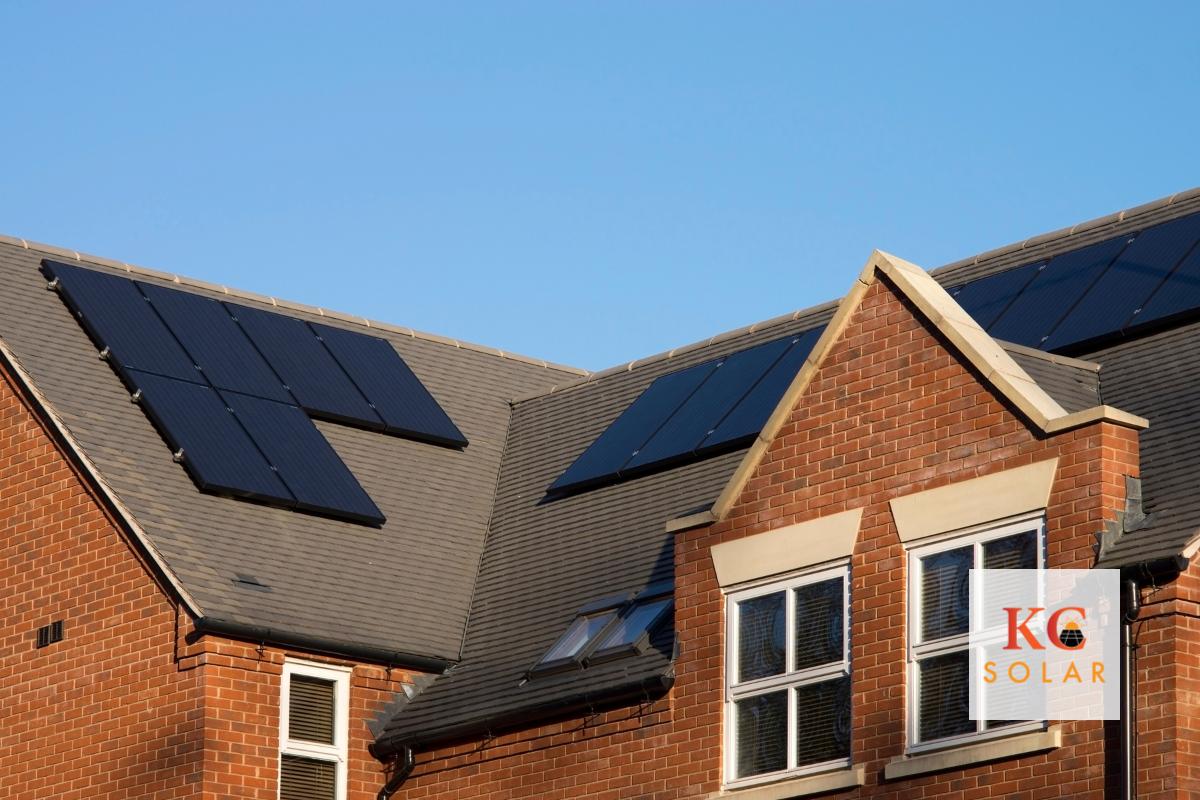By now, almost everyone knows about the new Inflation Reduction Act, which was signed into law in August 2022. Some of the most interesting provisions of the law — for us at KC Solar and potential solar customers — include the extension of solar tax credits and other incentives for solar equipment installation. But many people have one question: What about battery storage?
Not everyone understands how battery storage works or how it can help you save money on your electric bill. And when you add in a new law, the situation can be even more confusing.
Keep reading to learn more about battery storage, how it works, how it relates to the Inflation Reduction Act, and what it can mean for you.
How Solar Battery Storage Works
At a basic level, battery storage for solar works a lot like the everyday batteries you’re familiar with that power your TV remote, your smoke detector, or your wall clock. They store energy for later use.
Here’s how solar batteries work with your solar system:
- Your solar panels generate electricity from the sun.
- The direct current (DC) electricity is inverted and generates alternating current (AC) electricity, which can then be used by your home appliances.
- Any unused electricity is used to charge your batteries.
- When the sun goes down, the energy stored in your batteries is used to power your home appliances.
Think about one of the many myths about solar panels: that they “don’t work” when it’s cloudy, or that they don’t work when the sun is down. Having battery storage can ensure that your appliances stay running on cloudy days, dark nights, and even when the power is out in the rest of the neighborhood.
So why wouldn’t every solar customer want to use battery storage?
For some homes, it may not be absolutely necessary, making it an additional start-up cost on a project that may already feel expensive. In fact, most homes are not currently using battery storage. Homes without battery storage can pull from the local utility grid, where excess energy from the local community is sent and stored.
However, battery storage is more reliable and can contribute to savings in the long run, especially with the Inflation Reduction Act.
What the Inflation Reduction Act Means for Solar
The Inflation Reduction Act decreases prescription drug costs, health care costs, consumer energy costs, and more. It is the most progressive action on battling the climate crisis in American history, setting aside $369 billion for energy and climate change concerns — out of a $430 billion package. The Act will put the U.S. on track to decrease greenhouse gas emissions by about 40% below 2005 levels in 2030.
For solar customers, the Residential Clean Energy Credit will subtract 30% of the cost of installing solar heating, electricity generation, and other solar products from federal taxes.
This credit will be available to taxpayers through 2023, which means homeowners have plenty of time to consider their solar installation options.
If you install solar equipment on your house during that time frame, you are eligible to be compensated 30% of the total amount. Whether that’s $10,000 or $100,000, you will receive a nonrefundable credit to apply to your federal icon taxes.
According to the Department of Energy the following solar equipment will be covered by the new bill:
- Solar photovoltaic (PV) panels.
- PV cells used to power an attic fan (but not the fan itself).
- Contractor labor for onsite preparation, assembly, or original installation.
- Permitting fees, inspection costs, and developer fees.
- All equipment needed to get the solar system running, including wiring, inverters, and mounting equipment.
- Storage batteries.
- Sales taxes on eligible expenses.
Solar Batteries and the Inflation Reduction Act
As you can see from the list of eligible solar equipment above, solar batteries are covered under the Residential Clean Energy Credit in the Inflation Reduction Act.
In Section 13302 of the Act, it states that the credit can be used for “qualified battery storage technology expenditure.” So what counts as “qualified battery storage technology expenditure”?
According to page 345, battery storage is qualified if it:
- is installed in connection with a dwelling unit located in the United States and used as a residence by the taxpayer, and
- has a capacity of not less than 3 kilowatt hours.
In simple-to-understand terms, this means that your solar batteries will be eligible as long as it’s used at your residence and has a minimum 3kwH capacity. Most homes with residential solar systems have a capacity of 6 to 12 kwH, so meeting both of those requirements to be eligible for the tax credit won’t be a problem.
Keep in mind that the Residential Clean Energy Credit can also apply to your solar panel and solar battery purchases made in 2022. While the previous Investment Tax Credit only offered a 26% reduction in tax liability for 2022, the Residential Clean Energy Credit increased the savings to 30%. Claiming the higher amount will help you save the most money on your taxes.
And even if you purchased your solar system in 2022 — and didn’t add battery storage at that time — you may be able to claim the tax credit for 2023 if you purchase add-on battery storage this year. The IRS and Department of Energy haven’t issued guidance on this point yet, so be sure to consult with your tax advisor.
Save Money. Switch To Solar Today
If you are looking for the best solar company in Kansas City, look no further than KC Solar. We are your local Kansas City solar panel installation experts. Once you schedule a no-pressure site visit, our experts will help you understand what solar system specifications would be best for your home or business. We’ll also talk through your financing options and all the tax credits available to you.
KC Solar is the only local solar company in Kansas City with KC natives who own and operate the daily activities of the business. What does that mean for you? We care about you because we care about this city, and we only want the best for our neighbors.
And be sure to download our Free Solar Panel Buying Guide for more information.






